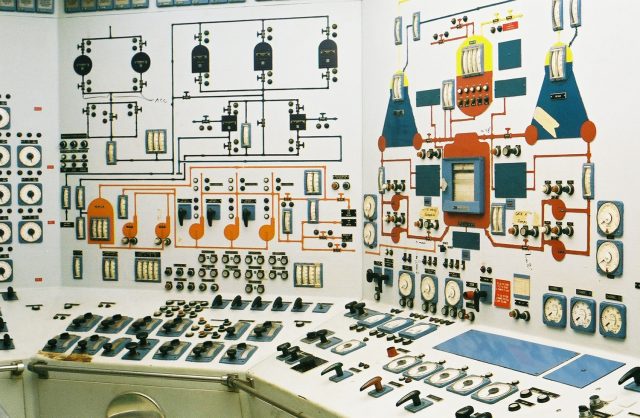
Golem (GNT): The Decentralized Supercomputer

Remember these sci-fi post-apocalyptic movies ranging from 60’s to 80’s where giant evil supercomputers would control humans as energy sources or as servant engineers who constantly had to upgrade and repair ‘THE machine’? Well, it’s not so far away from reality nowadays. Warsaw-based crowdfund startup Golem (GNT) is a network where a decentralized supercomputer based on the Ethereum blockchain network will be essentially using its users in order to generate its calculating powers.
Golem is the first truly decentralized supercomputer, creating a global market for computing power. Combined with flexible tools to aid developers in securely distributing and monetizing their software, Golem altogether changes the way compute tasks are organized and executed. By powering decentralized microservices and asynchronous task execution, Golem is set to become a key building block for future Internet service providers and software development. And, by substantially lowering the price of computations, complex applications such as CGI rendering, scientific calculation, and machine learning become more accessible to everyone.
Golem (GNT) connects computers in a peer-to-peer network, enabling both application owners and individual users (“requestors”) to rent resources of other users’ (“providers”) machines. These resources can be used to complete tasks requiring any amount of computation time and capacity. Today, such resources are supplied by centralized cloud providers which, are constrained by closed networks, proprietary payment systems, and hard-coded provisioning operations. Also, core to Golem’s built-in feature set is a dedicated Ethereum-based transaction system, which enables direct payments between requestors, providers, and software developers.
The function of Golem as the backbone of a decentralized market for computing power can be considered both Infrastructure-as-a-Service (IaaS), as well as Platform-as-a-Service (PaaS). However, Golem reveals its true potential by adding dedicated software integrations to the equation. Any interested party is free to create and deploy software to the Golem network by publishing it to the Application Registry. Together with the Transaction Framework, developers can also extend and customize the payment mechanism resulting in unique mechanisms for monetizing software.

Golem as an Ecosystem
Golem’s business case boils down to the fact that, due to relatively recent technological advances, the market for computing resources can be organized according to entirely new principles. In contrast, the computing market today is dominated by heavyweight players such as Amazon, Google, Microsoft, and IBM, who leverage their market power and assets to ensure hefty margins, resulting in inefficiently priced computing services.
According to Golem’s Whitepaper: the market is not doomed to function this way forever. With Golem the supply of computing resources is based on contributions of individual and professional providers, combined with an array of dedicated software solutions via Golem’s Application Registry – itself operating on a single and competitive market with nearly complete information market. Scaling the computing market enabled by Golem requires onboarding three groups: suppliers of computing resources (“providers”), task creators (“requestors”) who submit their tasks to be computed by the network, and of course, software developers. These three groups comprise Golem’s unique, interdependent ecosystem.
Use Cases
CGI rendering is the first and very illustrative case of real Golem usage. Rather than using costly cloud-based services or waiting ages for one’s own machine to complete the task, CGI artists can now rent compute resources from other users to render an image quickly. The payment from a requestor (in this case, a CGI artist) is sent directly to providers who made their resources available. In addition, when the artist’s machine is idle, it can itself accept tasks from other users.
Long-term vision: Golem as a building block of Web 3.0
“We believe the future Internet will be a truly decentralized network, enabling users to securely and directly exchange content, without sharing it with corporations or other middlemen. Accordingly, Golem will be useful not only to compute specific tasks but also to bulk-rent machines in order to perform operations within a self-organizing network. Of course, this will require the simultaneous development of other technologies, many of which have gained significant traction in recent years.
Better data-sharing technologies are necessary, but taking into account the ongoing development of IPFS/Filecoin and Swarm, the appropriate solutions seem to be within reach.
Eventually, the Ethereum network will become more scalable, more efficient, and include a fully functional network of micropayment channels. Once these technologies become available, it is easy to imagine Golem primarily as a platform for microservices, allowing users to run both small (e.g. a note-taking app) and large (e.g. a streaming service) applications in a completely decentralized way. Although ambitious, this vision seems to be the ultimate argument for Golem’s long-term potential.”
It seems like more and more blockchain projects really got the game straight and are now focusing on real-life use-cases and global scale problem-solving. Golem may sound ambitious for the time being but it is just the beginning of a new era of technological advancement and we will definitely need all the computing power we can get.
Let me know your thoughts on this in the comments.
Reporting for The Independent Republic, Ross Peili